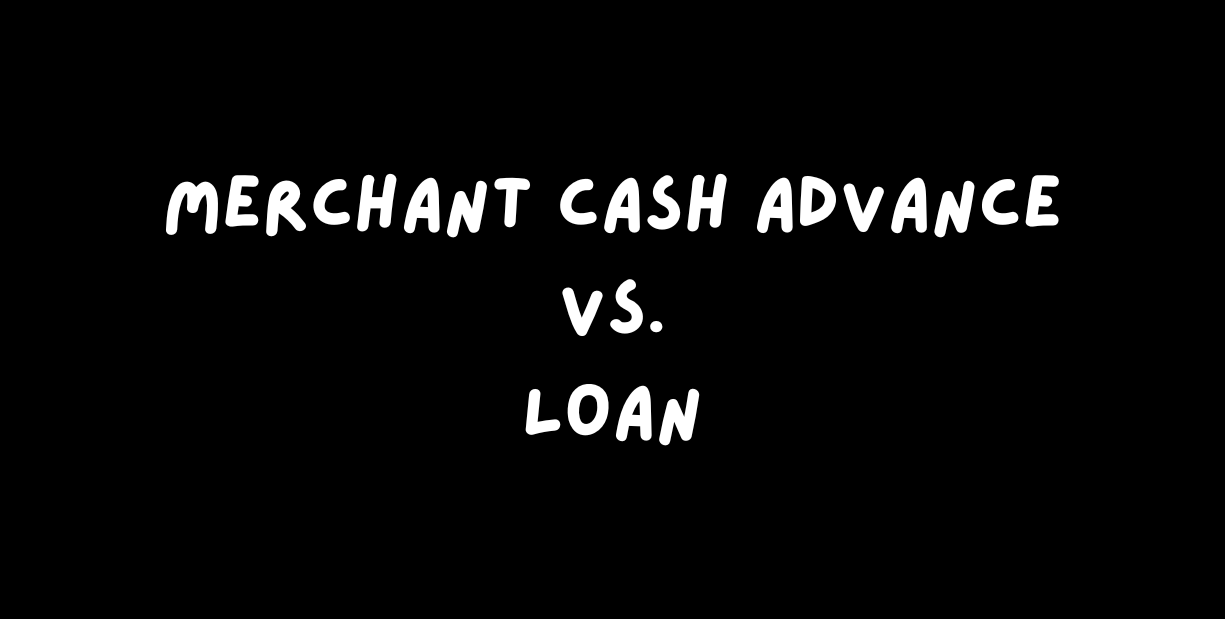Understanding MCA Loans: Legal Insights for Businesses
What are MCA Loans?

Importance of Understanding the Legal Aspects of MCAs
Understanding the legal aspects of MCAs is crucial for businesses considering this type of financing. MCAs are not governed by the same strict regulations that traditional bank loans are, which can lead to terms that are unfavorable or predatory if not carefully reviewed. The agreements may include complex terms, high factor rates, and aggressive repayment schedules that could severely impact a business’s cash flow. Additionally, some contracts may contain clauses such as a "confession of judgment," which can limit legal recourse in disputes. Due to these factors, it is vital for business owners to fully understand the contract and seek legal advice before entering into a Merchant Cash Advance agreement. This ensures they are making an informed decision that aligns with their business’s financial health and legal safety.
What is a Merchant Cash Advance Loan?
A Merchant Cash Advance (MCA) is not a loan, but rather an advance based upon the future revenues or credit card sales of a business. Essentially, a business sells a portion of its future sales at a discount to a finance company in exchange for an upfront sum of cash. This is a popular option for businesses that need immediate funding but may not qualify for traditional bank loans.
How MCAs Differ from Traditional Loans
The primary difference between MCAs and traditional loans lies in their structure and repayment methods:
- Repayment Method : MCA repayments fluctuate with the business's sales volumes, as repayments are typically made by taking a fixed percentage of daily or weekly credit card sales. In contrast, traditional loans usually have a fixed repayment schedule with monthly installments based on interest rates.
- Credit Consideration : MCAs focus more on the daily or monthly revenue of a business rather than the credit score of the business owner, making them accessible to businesses with less-than-perfect credit.
- Collateral and Personal Guarantee : Unlike traditional loans, which often require collateral or a personal guarantee, MCAs are unsecured in most cases. However, personal guarantees may still be required in certain MCA agreements.
Common Uses of MCA Funds in Business Operations
Businesses typically use the funds from MCAs for various operational purposes, including but not limited to:
- Inventory Purchases : Buying stock in bulk to prepare for peak seasons or to take advantage of bulk discounts.
- Equipment Upgrades : Financing the purchase of new or improved equipment to enhance efficiency or expand operations.
- Emergency Expenses : Covering unexpected costs such as repair works or unplanned operational disruptions.
- Expansion Projects : Funding for expanding the physical location or opening a new location.
- Marketing and Advertising : Investing in marketing campaigns to increase customer base and sales.
The flexibility of MCAs in terms of usage and repayment makes them an attractive option for many businesses, especially those in sectors with high sales volatility or seasonal fluctuations. However, the cost of capital can be higher than traditional loans, which underscores the importance of understanding all the terms and conditions before proceeding with an MCA.
How Do Merchant Cash Advances Work?
Explanation of the MCA Funding Process
The process of obtaining a Merchant Cash Advance (MCA) involves several steps, typically starting with a business owner applying with an MCA provider. The provider reviews the business's daily credit card receipts or overall sales to estimate its financial health and to determine how much money can be advanced. If approved, the business agrees to sell a portion of its future sales in exchange for an upfront lump sum payment. The entire process, from application to funding, can often be completed in just a few days, making it a quick source of funding for businesses.
Typical Terms and Conditions
- Factor Rates : Instead of interest rates, MCAs use factor rates to determine how much the business needs to repay. Factor rates usually range from 1.1 to 1.5 times the advance amount. For example, if a business receives an advance of $10,000 with a factor rate of 1.3, it must repay $13,000.
- Retrieval Rates : This is the percentage of daily or weekly sales that the MCA provider automatically deducts from the business's credit card transactions as repayment for the advance. Retrieval rates vary based on the volume of sales and the size of the advance but typically range from 5% to 20%.
- Term of Advance : Unlike traditional loans with a fixed repayment period, the repayment term of an MCA depends on the business’s sales volume. Higher sales mean faster repayment and vice versa. There is usually no set term for the advance, but most are designed to be repaid within 6 to 12 months.
Case Examples of Typical MCA Agreements
- Case 1 : A restaurant needs to repair essential kitchen equipment urgently. It secures an MCA of $20,000 with a factor rate of 1.4. The restaurant agrees to a retrieval rate of 10% of its monthly credit card sales. If the restaurant averages $30,000 in credit card sales monthly, it will pay $3,000 monthly, aiming to settle the total of $28,000 in about 9 months.
- Case 2 : A retail store prepares for the holiday season by stocking up on inventory. It receives an MCA of $50,000 with a factor rate of 1.2. The store agrees to a retrieval rate of 15% of its daily credit card sales, which average $2,000 per day. Therefore, it pays $300 daily, and expects to complete repayment, totaling $60,000, in approximately 200 days (about 7 months), depending on sales fluctuations.
These examples illustrate the flexibility and speed of MCAs, but also highlight the need for businesses to understand the cost implications and the impact of daily or weekly payments on their cash flow. As such, consulting with a financial advisor or a lawyer to review the terms and conditions of an MCA agreement is highly recommended.
Legal Considerations for MCAs
Key Legal Aspects to Consider Before Accepting an MCA
- Jurisdiction and Governing Law : Understand which state's laws will govern the agreement. This affects how disputes will be handled and what legal protections may be available.
- Disclosure Requirements : Although not as heavily regulated as traditional loans, some states require certain disclosures before a business can accept an MCA. Ensure these are provided and review them thoroughly.
- Usury Laws : While MCAs are structured as commercial transactions (purchase of future sales) and not loans, some legal arguments have challenged this classification, claiming usurious interest rates. Be aware of how local laws view and regulate usury concerning MCAs.
Common Clauses in MCA Contracts That Require Attention
- Reconciliation Clauses : These clauses allow businesses to request an adjustment of the retrieval rate based on actual sales. This is crucial for avoiding overpayment if sales are significantly lower than projected.
- Personal Guarantee : Some MCA agreements require a personal guarantee from the business owner, which could put personal assets at risk in case of default.
- Prepayment Conditions : Understand if there are penalties for early repayment of the advance. Some MCAs penalize early payoffs, which can affect business decisions about managing cash flow and debt.
- Grant of Security Interest or UCC-1 Filing : Even though MCAs are generally unsecured, some agreements involve a UCC filing to place a lien on business assets, which could affect future financing options.
The Implications of the "Confession of Judgment" Clauses
A "confession of judgment" is a clause sometimes included in MCA agreements where the borrower agrees, in advance, to let the lender win a court judgment for the amount owed without a trial if there is a default. This can severely limit a business owner's legal recourse and bypass normal court proceedings, leading to rapid and significant consequences including:
- Immediate Debt Collection : The lender can begin debt collection efforts immediately after filing the confessed judgment with a court.
- Seizure of Assets : Depending on the jurisdiction, this might allow lenders to seize business assets, bank account funds, and other properties to satisfy the debt.
- Credit Impact : Having a judgment filed against you can severely impact your business's credit rating and ability to secure future financing.
Legal Advice
Given the complexities and potential risks associated with MCAs, it is highly advisable for business owners to seek legal counsel prior to signing an MCA agreement. A lawyer can help interpret the contract, identify any unfavorable terms, and advise on the overall impact of the agreement on the business's financial health and legal standing. This preventative measure can safeguard against entering into a financially harmful arrangement and ensure that business owners fully understand their rights and obligations under the contract.
Risks Associated with Merchant Cash Advance Loans
High Costs and Interest Rates: Legal Ramifications
Merchant Cash Advances (MCAs) can often carry high costs and effective interest rates, particularly due to the use of factor rates rather than traditional interest rates. These costs can quickly escalate, especially if the business experiences a downturn in sales, leading to a much higher cost of capital compared to conventional loans.
Legal Ramifications
- Potential Misclassification : If challenged in court, some MCAs could be reclassified as loans. If the effective interest rate exceeds state usury limits, the agreement could be found to violate usury laws.
- Disclosure Violations : Businesses must carefully review whether the MCA provider has complied with applicable commercial financing disclosure requirements, which vary by state. Non-compliance can lead to legal challenges and potential penalties for lenders.
Impact of Daily or Weekly Repayment Structures on Business Cash Flow
MCAs typically require daily or weekly repayments which are directly debited from the business’s bank account. This can have a significant impact on a business's operational cash flow, particularly:
- Cash Flow Management : Constant deductions can strain the business’s ability to manage operational expenses, especially during slower sales periods.
- Increased Financial Pressure : The rigid repayment structure can lead to increased financial pressure, forcing businesses to cut costs, reduce investments, or in extreme cases, cease operations.
Legal Disputes Arising from MCAs and How They Are Resolved
Legal disputes related to MCAs often involve allegations of predatory lending practices, misrepresentation, and breach of contract. Here's how such disputes are typically resolved:
- Negotiation and Settlement : Many disputes are resolved through direct negotiation between the lender and the borrower. Settlements may involve restructuring the repayment terms to avoid further legal action.
- Arbitration : Some MCA agreements include an arbitration clause, requiring disputes to be resolved through arbitration rather than in court. This can limit a business’s ability to take collective legal action (such as in a class action lawsuit).
- Litigation : In cases where negotiation or arbitration fails, or if no arbitration clause exists, disputes may escalate to litigation. Courts will examine the contract, practices of the lender, and the circumstances under which the agreement was signed to determine if any predatory practices were employed or if the agreement is legally binding.
Rights and Protections for Borrowers
Federal and State Regulations That Protect MCA Borrowers
While Merchant Cash Advances (MCAs) are not traditionally regulated as strictly as other financial products due to their classification as commercial transactions (not loans), there are still some regulatory frameworks in place that offer protection:
- Truth in Lending Act (TILA) : Although TILA primarily applies to consumer loans, some states have enacted similar disclosure requirements for commercial transactions, including MCAs. These regulations require clear disclosure of terms such as the amount provided, total repayment amount, and retrieval rates.
- State Commercial Financing Laws : States like California and New York have specific laws requiring lenders to disclose comprehensive details about the financing provided. These laws aim to ensure transparency and fairness in commercial financing.
- Usury Laws : In some jurisdictions, if an MCA is reclassified as a loan through legal action, it may fall under state usury laws, which cap the maximum interest rates that can be charged.
Legal Actions Borrowers Can Take if They Face Predatory Lending Practices
If a business believes it has been subjected to predatory lending practices through an MCA, there are several legal avenues it might pursue:
- Contract Review : Have a lawyer review the MCA agreement for any abusive terms or clauses that were not fully disclosed or understood at the time of signing.
- State Attorney General Complaints : File a complaint with the state attorney general’s office, particularly if the lender has violated state laws regarding commercial lending.
- Civil Lawsuits : Businesses can file a lawsuit against the lender for practices such as misrepresentation, breach of contract, or violating state mandated disclosure requirements.
- Negotiation : Legal counsel can help negotiate with the lender to alter or terminate the MCA agreement terms, particularly if the business's financial stability is at risk.
Importance of Consulting with a Legal Expert When Dealing with MCAs
Consulting with a legal expert is crucial when dealing with MCAs for several reasons:
- Understanding Complex Terms : MCA agreements can contain complex terms and clauses that may not be immediately clear. A lawyer can help interpret these terms and assess the full implications for the business.
- Negotiating Better Terms : An experienced attorney can help negotiate more favorable terms before signing the MCA, potentially saving the business from onerous financial obligations.
- Legal Protection : A lawyer can identify any potential legal violations in the MCA contract or lender practices. Knowing the legal rights and protections available can prevent businesses from falling victim to predatory practices.
- Dispute Resolution : Should disputes arise, having legal representation can help effectively manage and resolve these issues, whether through negotiation, arbitration, or litigation.
While MCAs can provide needed capital for businesses, they come with risks that require careful consideration. Understanding the protective legal frameworks, knowing the legal actions to address predatory practices, and consulting with legal experts are vital steps to ensure that businesses make informed decisions and safeguard their interests when engaging with MCA providers.











